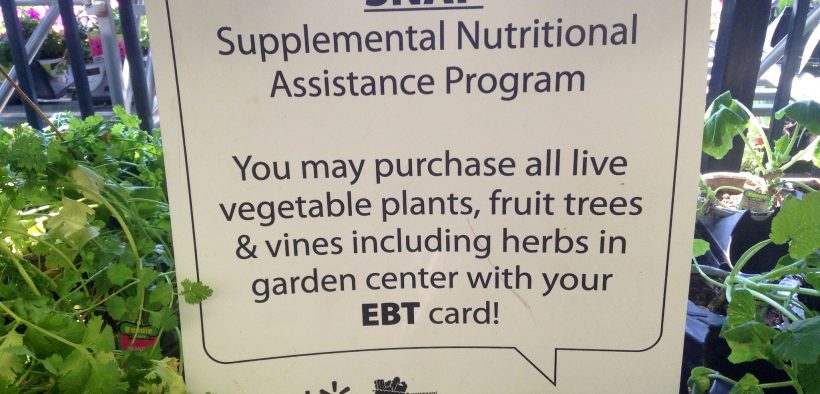Cuts to SNAP Delayed, For Now

Cuts to SNAP Delayed, For Now
On March 13 a Federal Judge issued a decision to stop a planned rule change to the Supplemental Nutrition Assistance Program (SNAP). The new rule would have prevented an estimated 700,000 people from continuing to use the program. Prior to the court ruling it appeared the Trump administration and the Department of the USDA which administers SNAP had not indicated any intention of canceling or delaying implementation of the new rule.
Plan to End SNAP Waivers
In order to access SNAP benefits adults who are not disabled or senior citizens and who don’t have dependents must meet certain requirements including working or participating in job training to continue receiving benefits after three months. The federal funding for SNAP comes from the Food and Nutrition Service (FNS), a branch of the U.S. Department of Agriculture (USDA), but SNAP is administered by state agencies. These agencies have been able to determine for themselves when to grant waivers to the requirements, due to things like a recipient being in a high unemployment area or other concerns. The plan to drastically limit waivers was included in a failed draft of the 2018 Farm Bill and then enacted as a rule change by FNS last December. It was set to go into effect in this April.
The Ruling
In January of this year the Attorney General from New York and the Attorney General from the District of Colombia sued the USDA over the rule change. The lawsuit was joined by the Attorneys General from nineteen other states, New York City, and three private plaintiffs. The lawsuit mainly centers around two issues: that the USDA did not satisfy the legal requirements of the rulemaking process when creating the new rule, and that the change would cause serious economic damage to the States.
The case went to the U.S. District Court for D.C. and the ruling was issued by Chief Judge Beryl A. Howell. Judge Howell determined that the first complaint about the rulemaking process itself did not have merit, but that the second complaint did. Her decision states that “All the plaintiffs have also shown that implementation of those aspects of the Final Rule will cause them irreparable harm.” By limiting the waivers so much, the new rule would create a substantial new financial and administrative burden for the states.
Judge Howell also mentions, “The balance of the equities and the public interest further weigh in favor of preliminary relief for the plaintiffs.” A footnote in the decision more specifically references the COVID-19 pandemic, “The current pandemic of coronavirus disease further highlights the connections between health and the SNAP program. “Data from the Bureau of Labor Statistics shows that low-wage workers are far less likely to have access to paid sick leave or paid family leave.””
Families First Corona Virus Response Act and Other SNAP Updates
On Saturday March 14 the U.S. House passed the Families First Coronavirus Response Act. It will head to the Senate next and seems to have strong bipartisan support. The Act includes several funding allocations for FNS to use to “ensure the domestic nutrition assistance programs have adequate resources to help those impacted by the COVID-19 public health emergency.” These include funding to provide access to food for women who are pregnant or have young children and were laid off due to the pandemic, funding to ensure kids who rely on school lunches still have access to food, support for local food banks, and funding for the Senior Nutrition Program. The Act did not make any legislative changes to the work requirement waiver rules.
On March 17, the FNS issued a different kind of waivers allowing SNAP users in parts of Tennessee that had been hit by tornadoes to use SNAP for hot food. Usually the benefits can only be used on unprepared food. This was unrelated to the COVID-19 pandemic but illustrates the need to sometimes make changes to the program quickly during emergency situations, which the pandemic is increasingly becoming for many Americans.
What’s Next for the Work Requirement Waiver Rule Change
Both President Trump and Department of Agriculture Secretary Sonny Perdue were very committed to these changes to the waiver program. On March 3, the FNS sent a letter to the States advising them that “Expanding E&T [Employment & Training] opportunities for SNAP recipients in your state must be a top priority.” The emphasis on increasing E&T participation is directly related to the waiver change. It seems likely that the current ruling will be appealed to a higher court and that the FNS will continue to push for the change.















